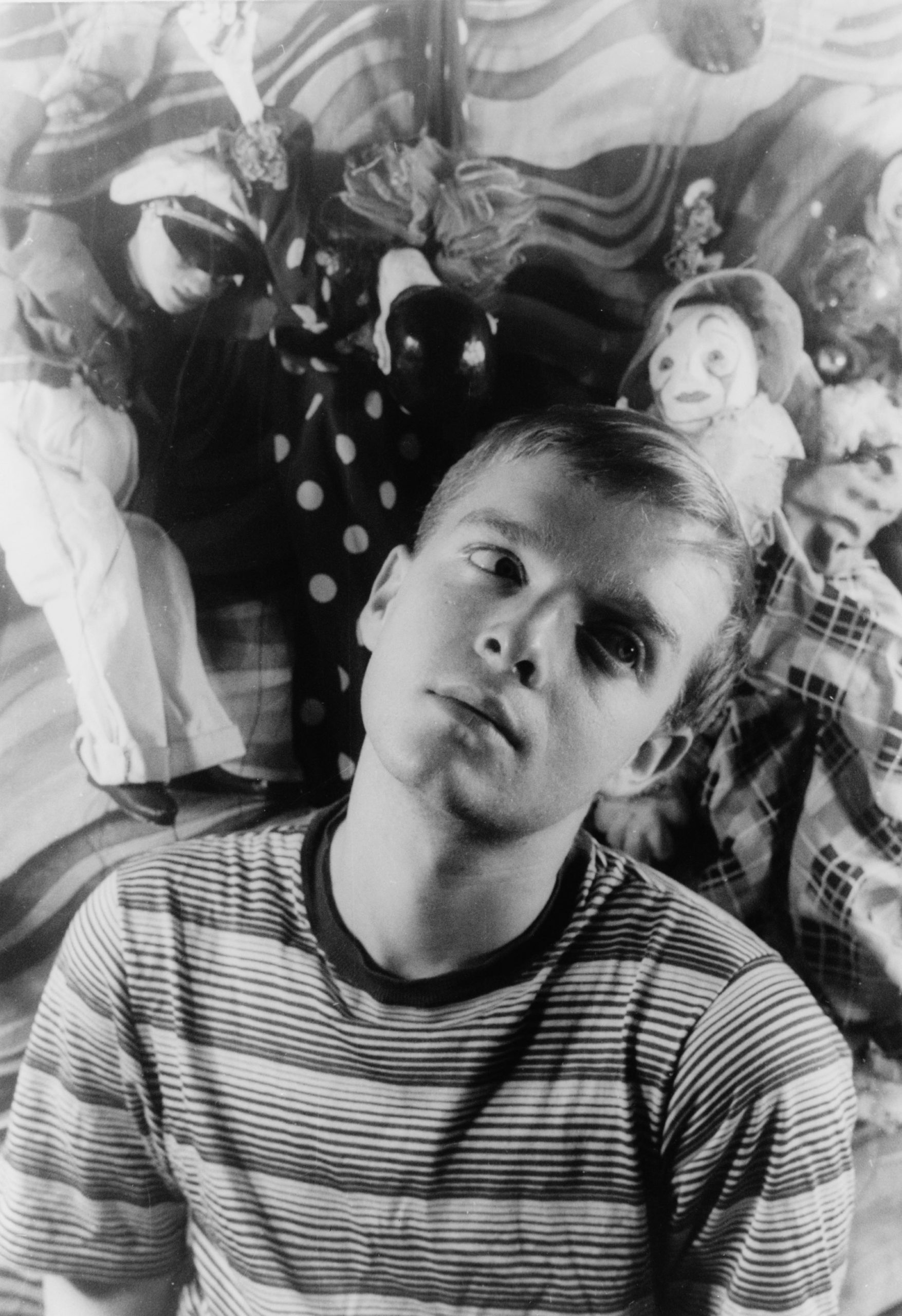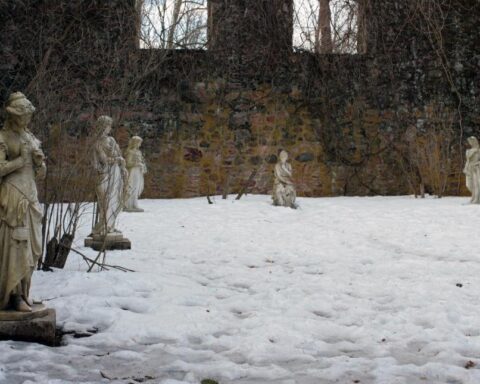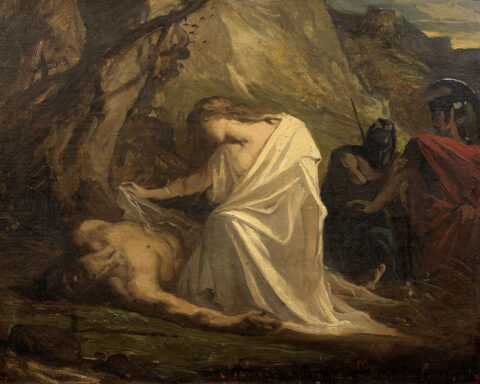I had a dream date with Truman Capote last night … literally.
And I don’t mean literally as in the Oxford Dictionary: informal Used for emphasis while not being literally true.
I mean literally.
The reason I dreamed of Truman Capote was probably the result of a recent dinner party I attended. One of the guests, a young woman, had stared at me during the meal in bewilderment after I mentioned the author’s name. “You know. The writer? Breakfast at Tiffany’s? The book? The movie?”
She smiled politely, close-mouthed and thinned lipped. A mystified squint furrowed her previously unaltered brow.
“In Cold Blood?” I prodded.
“Yeah, um. No.”
I reluctantly gave her the benefit of the doubt – maybe it’s simply an age thing – as I had during an interaction with a young man a couple of months previous. “Brian Wilson? The Beach Boys?”
“Yeah, um. No.”
The venue of my dream was a dark, wallpapered room in a speakeasy-type dining establishment and I was unbelievably lucky in finding myself sitting directly beside the famous author, within touching distance. There were guests seated around the other six or so round tables that spread out in a semi-circle beyond ours, although they were all insignificantly lip-synching like extras during the filming of a movie. Cigarette smoking was non-existent in my dream, and at no time did my subconscious point out such a blatant misrepresentation. I didn’t recognize any of the other three people at our table.
I was physically young (of course, it’s a dream) and sat rigid although everyone else seemed perfectly at ease. Cocktails gleaned atop the tablecloth, but my preference of white winewasn’t anywhere in sight, probably the reason I wasn’t drinking. There was no food on our table, which seems unusual to me now considering how much I love to eat. But obviously my mind held greater plans for me.
It dished out Truman Capote.
I asked in nervous halting words if he would like to be called Mr. Capote or Truman. Was the latter perhaps too informal?
He didn’t reply.
I then brought up the subject of Breakfast at Tiffany’s. This conversation was so clear in my dream that I woke up in a daze barely believing it hadn’t actually happened. Still in my nightie, without pursuing my morning ritual, I shuffled to my writing room to jot everything down as quickly as possible on the first piece of paper I could find, which happened to be an envelope, before the daylight sifting through the gaps of my blinds could expunge it from my mind.
“I – I loved Breakfast at Tiffany’s,” I said. “The book and the movie.”
A middle-aged fellow with a square jaw sitting across from me smiled smugly as if he’d heard this same line in others’ ethereal illusions innumerable times.
A woman to the right of Mr. Capote or Truman (he was sandwiched between the two of us), took a sip from her ice-filled lowball at a slow pace, and for a moment I couldn’t take my eyes of the sight of her somber lips cradling the rim of the glass. Reminiscent of Zelda Fitzgerald, with wavy deep-brunette bobbed hair and alabaster skin, she returned the drink to the table and settled into the back of the chair, mutely confident in her sequined sleeveless black dress.
The other two guests at our table were men, quite indistinguishable to me in any way, but clearly present. I figured they were his friends, perhaps one of them his partner. Their shoulders stayed slumped, their arms relaxed, and their hands listless unless reaching for a drink. The only one ill at ease was me.
The author grinned.
It felt wonderful to be acknowledged by Mr. Capote or Truman, even just this gesture. I could easily have been dismissed, my personal dream or not. But it seemed he was thrilled with my question.
“It wasn’t at all difficult to write. Quite simple, really.”
His body language, planted in my memory from late night talk shows when I was a teenager and had, some might say, an unnatural fondness for Mr. Capote or Truman, regenerated my memories of him with acute accuracy as he spoke: the strange and slow high-pitched drawl, the visible tongue flicks hitting the inside of his lips through an open mouth, his head tilted back.
I looked at him, incredulous, wanting to believe. “Really?”
His gaze focused slightly outward as he aligned his face with mine. Not once did he look directly into my eyes.
“Yes, quite simple. Although I must tell you that the studio people changed so much of it that I was upset when the movie came out. It wasn’t at all what I had in mind. You know it was a short novel, don’t you? Even so, I was angry it had been changed to such an extent. So very angry.” His face tightened and the lines between his eyebrows deepened into a scowl.
I glanced past him at the woman in the black dress. She continued to look straight ahead beneath side swept bangs, nursing her drink, this glorious conversation not altering her mannerisms in any way.
“But it was completely out of my hands, you see. These were not my decisions. This was not what I envisioned.”
Mr. Capote or Truman carried on about the writing of Breakfast at Tiffany’s and the subsequent success of the novella in a rambling way, with skewed statements about his character, Holly Golightly. Her brownstone apartment in Manhattan featured prominently; its flight of stairs and fire escape were understood locales within sentences that mingled oddly with narration that didn’t make sense although I tried to grasp and hold onto every word. Mr. Capote or Truman’s facial expression changed to one of gaiety then with a broad smile, and it was obvious he was proud of this particular literary achievement.
At the end of his discourse, he laughed in that way of his that more often than not generated snickers from audience members during televised appearances.
From an interview of the early seventies, one distinct piece of dialogue has stayed fixed in my memory. Impressionable and wide-eyed, I listened as Mr. Capote or Truman turned to the host and asked in a clear drawl why the audience was laughing at him. My young heart sank. I felt only empathy for the man who had come so far, further than even he could have envisioned, and it felt to me as if he was facing as much humiliation as a defeated gladiator in a Roman arena.
Not once during our intangible dinner did I mention to Mr. Capote or Truman that I had longed to be a writer since I was a kid but didn’t try very hard because everyone told me it was just a silly dream. Not once did I ask him for his assistance in the knotty world of publishing, considering his endless and preeminent connections, or tell him that I’m in a hurry to make my mark because I’m actually in middle age, awakened by the ticking of the clock.
But I can tell you with complete honesty that I wanted to with every fiber of my fantastical, conjured up, hallucinatory, impassioned-author self. Considerate in sleep, I deemed it too pretentious.
The dream seemed to last approximately twenty minutes. I have heard people say that no one has the ability to know how long a dream actually lasts; it could be mere seconds. But this dream conveyed within it the impression of time, as though the five of us were fictionalized within the actual constraints of time, real time. It was one of those dreams where you don’t realize at all that you are, in fact, in the land of fanciful deception.
I’m pretty sure I have simply my imagination to thank for the surreal dinner gathering, and no doubt it was only a one-off. Still, just in case you’re listening Mr. Capote or Truman: If there is a next time, how about we discuss those connections of yours?
Image by Carl Van Vechten, Public domain, via Wikimedia Commons




